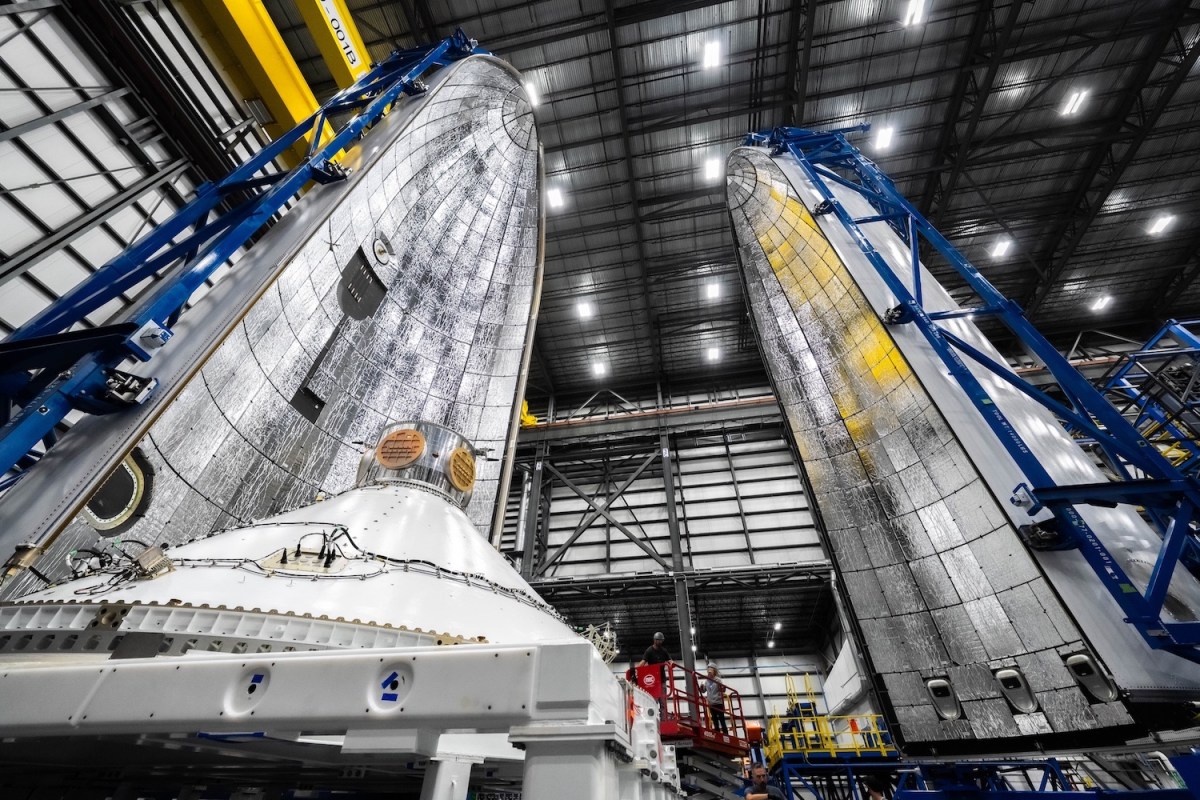Blue Origin says it’s on track to launch its towering New Glenn vehicle before the year’s end, though the company is still awaiting regulatory approval to conduct a final key test of the massive rocket.
That test, called a “hot fire,” involves powering up all seven of the first stage’s BE-4 engines and firing them to full thrust while the rocket sits on the pad. The test is designed to mirror how the vehicle will operate during lift-off. If all goes to plan during the hot fire test, Blue Origin will move to integrate the fairing (the part of the rocket that holds the payload) as the final step before launch.
Much depends on this first test. As Blue Origin founder Jeff Bezos said in an interview at The New York Times’ Dealbook Summit earlier this month, New Glenn is key to his vision to lowering the cost of launch enough to move all polluting industry into orbit: “I know that sounds fantastical, so I beg the indulgence of this audience to bear with me for a moment,” he said. “But it’s not fantastical. This is going to happen, and we need to lower the cost of access to space low enough, and that’s what New Glenn, our orbital vehicle, is all about.”
The 320-foot-tall rocket will be capable of carrying 45 metric tons (99,200 pounds) to low Earth orbit. This is more powerful than United Launch Alliance’s Vulcan Centaur and SpaceX’s Falcon Heavy in its reusable configuration. For comparison, SpaceX’s Starship, the largest rocket ever built, is designed to carry 100-150 metric tons to LEO.
In the shorter term, getting New Glenn up and running is likely key to turning Blue Origin into a profitable business. While Blue Origin’s financials are not public, and it benefits enormously from Bezos’ personal fortune, the Amazon founder said during that same summit that he anticipates it one day growing into his biggest business yet.
“I think it’s going to be the best business that I’ve ever been involved in, but it’s going to take a while,” he said.
This inaugural New Glenn mission was originally slated to fly a high-profile pair of satellites to Mars for NASA, for a launch window that opened in October. But the space agency ultimately decided to push back that mission to another New Glenn launch in the spring of 2025, citing potential issues that could arise should the rocket be delayed.
Instead, the NG-1 mission will test a demonstrator payload for the company’s Blue Ring orbital transfer vehicle, including communications, the power system, flight computer, and software that will be used on future production OTVs. In a post on X, Blue Origin CEO Dave Limp said the company was developing Blue Ring in response to “a growing demand to quickly move and position equipment and infrastructure in multiple orbits.”
The rocket’s maiden flight will also be the first of two certification launches Blue Origin must nail to start flying national security payloads under the Space Force’s National Security Space Launch program.
Before any of this can happen, however, Blue Origin must receive regulatory from the Federal Aviation Administration. Only once these are in hand can Blue Origin launch the rocket from Florida’s Cape Canaveral Space Force Station.

